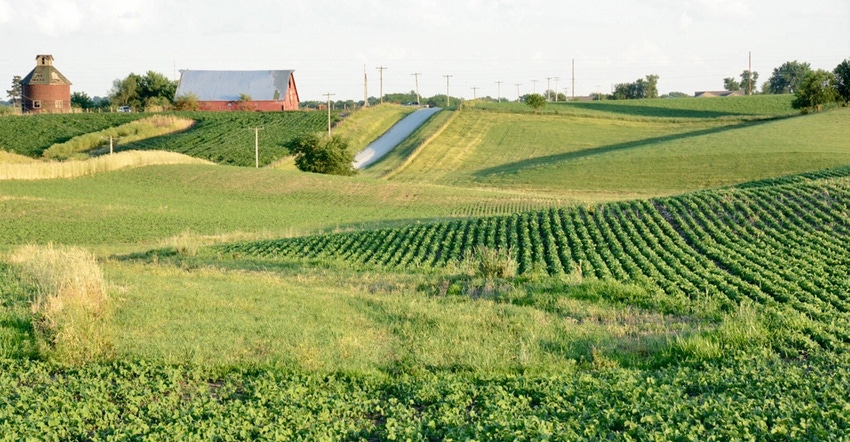March 22, 2018

Have you ever wanted to offer your opinion but didn’t think anyone would listen? Or worse yet, they acted like they didn’t even care? I’ve been there, and it can be frustrating. I’ve also been in situations where feedback comes in the form of complaints. You know, when someone comes up and says, “You’re doing this all wrong, and here’s how to fix it.” Or they say, “If you don’t do it my way, you are an idiot.” That’s kind of frustrating, too.
There’s a better way to have more productive discussions and influence real improvements to real issues than just complaining. I know there are good ideas out there to help make things work better now or prepare us for the future. But is there a good time or a good way to let your voice be heard?
I think the answer is a resounding yes! Now — right now — is that time. Agriculture is at a policy crossroads, and that includes ag conservation, too. I see three major possibilities for directional changes in agricultural conservation. Each of these three issues has an opportunity for the public to voice its opinion.
1. Farm bill. One area where your opinions make a difference is with the farm bill. It sets the stage for ag policy and programs for the next five years. We are fortunate to have three congressional members from Illinois on the House Ag Committee. Reps. Mike Bost, Cheri Bustos and Rodney Davis give us great bipartisan congressional support. I’m not trying to speak for them, but I have heard them say they want to hear from you about this critical piece of ag policy. There is still time to weigh in. House Ag Committee Chairman Mike Conaway of Texas has set up a website to make it convenient for you to provide feedback and get updates on farm bill activities.
I hope as you provide your input, you consider support for a strong conservation title that focuses on voluntary, locally led conservation.
2. Farm Production and Conservation. Another area where you have a chance to comment is the new Farm Production and Conservation mission area. U.S. Ag Secretary Sonny Perdue announced last year that he looks for this new mission area to put the customer-facing USDA agencies — Farm Service Agency, Natural Resources Conservation Service and Risk Management Agency — into the same management structure.
It makes good sense to me. While our agencies retain separate missions, we do share many of the same customers, and we also share the same field office delivery system. There are many opportunities to improve access to services and have a better overall customer experience. The secretary plans to implement that integration and alignment of the policy, data and communication structure among these sister agencies. Perdue also says he wants to keep the focus on customer service, and he is working on several ways to gather your opinions as to what you think these improvement efforts should include.
3. Right here. I want to hear from you. I don’t have the power to change the farm bill or the vision and authority of the secretary of agriculture, but I do have flexibility for setting state and local priorities and determining how we deliver our services. I want to know if you think we are focusing our financial resources and programs on the areas that are important to you.
I’d like to hear about what you value most about NRCS. Is it the financial assistance or the technical assistance, or both? Do you think NRCS has the right kinds of technical expertise to deliver conservation practices, or are there areas we need to improve? Do we have the right people in the right places? Are we responsive and timely? Is our one-on-one concept of conservation assistance still relevant in the big-information era?
So, now is your chance to sound off. Drop me an email or feel free to reach out to me when I’m out and about. And even though it can be frustrating sometimes, I’m open to hearing the bad along with the good.
Dozier is the Illinois state conservationist. Direct comments or questions to [email protected].
About the Author(s)
You May Also Like




